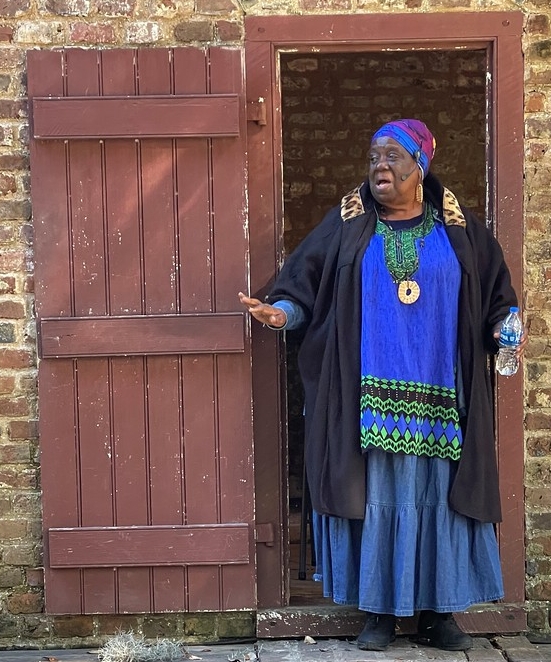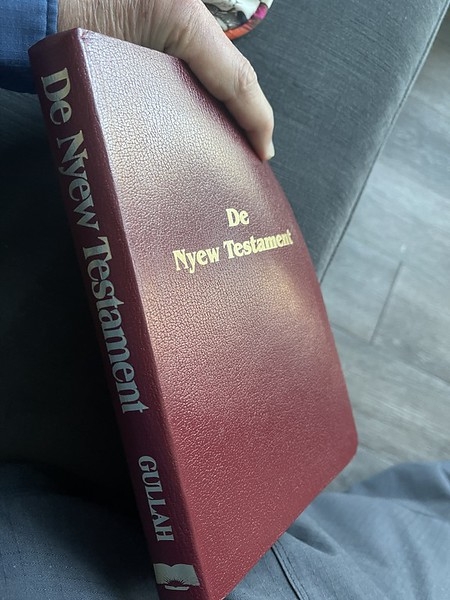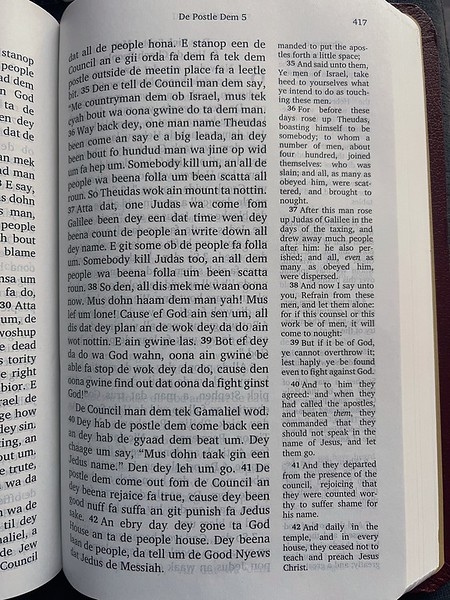Ephesians #8 "Live Like It!"
October 29, 2023Pastor Patrick presented this morning's message, "Live Like It!" It was the 8th message in a series studying the book of Ephesians. A video of the message is here. Our Conversation Starter for this week is here.
As I watched the video of the message (from our room in Charleston, SC), I kept thinking about one of the many points about the Torah that Prager makes: the vast majority of the laws for behavior are negative. They are not only negative, by-and-large, but also in the first person: YOU, Jamie, don't do such-and-such.
It's simply true that one can more precisely define what not to do rather than what to do. "Be nice" is rather nebulous, even though you could list gazillions of ways to be nice if you sat down and thought about it. Then it becomes which ones of those gazillions do you do.
Writing the rules in the negative, you might say, is a more succinct way of defining good behavior. Just don't do these things, and you'll be fine.
In a very clear way, the Old Testament lays out what is immoral, impure, greedy, obscene, foolish, coarse, etc. - basically the list to avoid in today's section of Ephesians.
Take the notion of "watch what you say." There are laws in the Torah that cover everything from talking behind someone's back (gossiping) to outright lieing in a court of law.
Here's one about not hooking up with someone evil. Exodus 23:1, "You shall not bear a false report; do not join your hand with a wicked man to be a malicious witness." In other words, don't let anyone corrupt you.
Here's another... Leviticus 19:16, "You shall not go about as a slanderer among your people, and you are not to act against the life of your neighbor; I am the Lord." We've mentioned it a number of times, but it's worth repeating. When it comes to laws that are easy to get away with, they often end with "I am the Lord." You may get away with it as far as your fellow human beings are concerned, but God sees all, so be careful.
It's interesting that gossiping in the Old Testament uses words that fundamentally mean walking around and also whispering. For an interesting read on these notions, click here.
Bonus
Gullah
 Several of us traveled this week to Charleston, SC for a family wedding. Had a great time. The weather was perfect (maybe a little chilly), the wedding was a hoot, lots of fun stuff to see and do in Charleston, not to mention the very good restaurants. Some Charleston trip photos and details are here.
Several of us traveled this week to Charleston, SC for a family wedding. Had a great time. The weather was perfect (maybe a little chilly), the wedding was a hoot, lots of fun stuff to see and do in Charleston, not to mention the very good restaurants. Some Charleston trip photos and details are here.But the "big discovery" was the Gullah (or Geechee, sometimes) people (Wikipedia) whom we had never heard of before (or never remembered maybe from school days). (The vowels in Gullah sound like the vowels in bubba.) We stumbled onto this discovery at the Boone Hall Plantation in Mt. Pleasant, SC (just over the bridge from Charleston). A Gullah woman (pictured at right) gave a roughly 40-minute presentation about the Gullah people, part of their story, some music, and a bit of the language. Fascinating!
 And being something of a nut about languages, particularly Biblical languages, the biggest sub-discovery was a New Testament version written in the Gullah language (American Bible Society, 2005). I found myself wondering where and when did these various peoples come to be Christian, the religion of their oppressors, no less? The answer seemed to be that many became Christian before leaving Africa. The woman at Boone Hall said "the Gullah language basically was English with certain sounds simply dropped, the grammar flipped a bit, and words from the original Creole languages inserted." Their music included the "call and response" method, which she demonstrated. Sweetgrass baskets are a Gullah thing. It's also told that the tradition of painting ceilings haint blue to ward off evil spirits comes from the Gullah people. Some of our tales come from the Gullah, including Brer Rabbit. US Supreme Court Justice Clarence Thomas spoke Gullah. One last tidbit: the phrase Kumbayah (come by here) is likely Gullah.
And being something of a nut about languages, particularly Biblical languages, the biggest sub-discovery was a New Testament version written in the Gullah language (American Bible Society, 2005). I found myself wondering where and when did these various peoples come to be Christian, the religion of their oppressors, no less? The answer seemed to be that many became Christian before leaving Africa. The woman at Boone Hall said "the Gullah language basically was English with certain sounds simply dropped, the grammar flipped a bit, and words from the original Creole languages inserted." Their music included the "call and response" method, which she demonstrated. Sweetgrass baskets are a Gullah thing. It's also told that the tradition of painting ceilings haint blue to ward off evil spirits comes from the Gullah people. Some of our tales come from the Gullah, including Brer Rabbit. US Supreme Court Justice Clarence Thomas spoke Gullah. One last tidbit: the phrase Kumbayah (come by here) is likely Gullah.